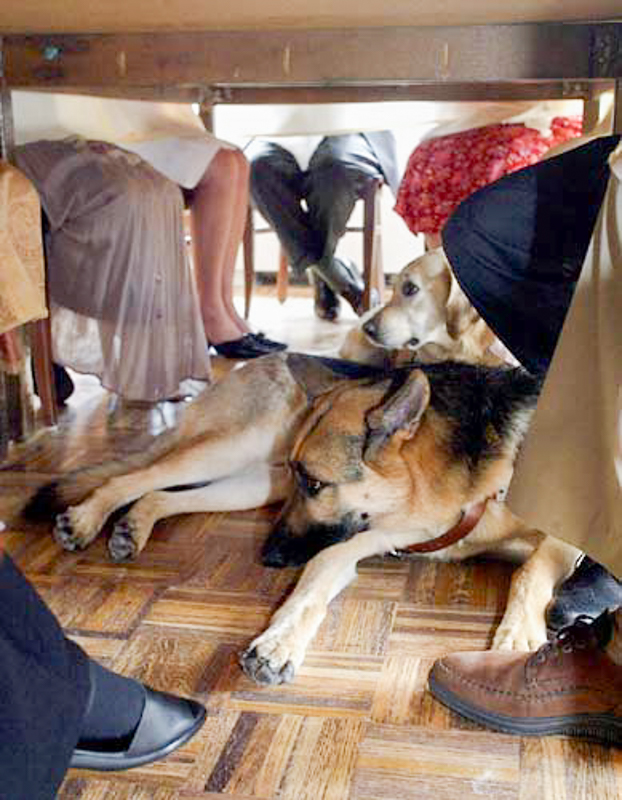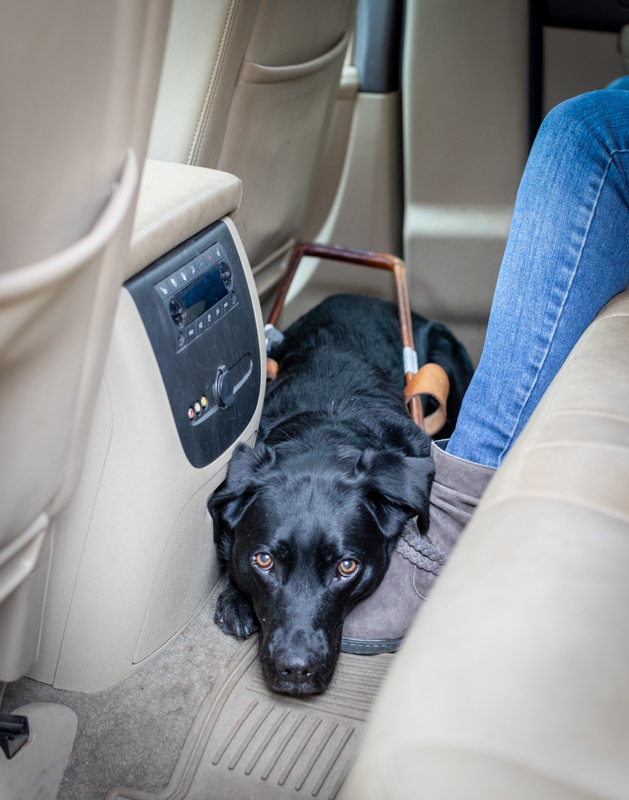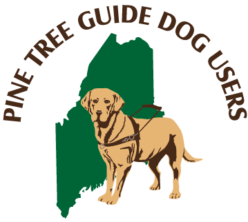Standards of Behavior
Access Challenges
Legal Access

Standards of Behavior
The high standards of behavior required for guide dogs goes far beyond that of ordinary pets. It takes almost two years to prepare a guide dog for its work. A significant amount of that time is spent gradually exposing the dog to a variety of public places and modes of transportation. This extensive focus on socialization enables guide dogs to calmly and reliably perform their essential duties in all types of settings, and ensures that venues like busy restaurants and crowded buses will not trigger fearful or anxious behaviors such as uncontrolled barking, vicious growling, jumping on other people, or getting away from the handler.
High standards of behavior also help to differentiate legitimate service animals from those whose owners make false claims about a dog’s status in order to gain access or avoid “pet” fees.
Download our educational flyer about how to recognize
legitimate service animals. (Photos in flyer provided
courtesy of K9s For Warriors and The Seeing Eye.)
Public entities may legally exclude service animals if 1) the dog is out of control and the handler cannot or does not regain control; or 2) the dog is not housebroken (i.e., trained so that, absent illness or accident, the animal controls its waste elimination).
Access Challenges
Guide dogs are uniquely capable of increasing the mobility of blind people and enhancing their lives. But sometimes negative attitudes about a guide dog’s presence interfere with the handler’s ability to fully engage in everyday life. These attitudinal barriers often stem from ignorance, misunderstanding, or past experiences that taint perceptions.
Read about the access challenges faced by businesses and people accompanied by legitimate service animals in MaineBiz.com, a leading source of news for Maine business owners and decision makers.
Not surprisingly, attitudinal barriers can pose access challenges when handlers attempt to acquire goods or services. For instance, a business may refuse to allow access to a guide dog team because the last dog in the store was not housebroken; a restaurant owner who mistakenly believes that the Board of Health prohibits all animals in places where food is served may ask the handler to leave; a rideshare driver may say “no dogs” for fear that the guide dog will jump all over the seat and cause damage; hotel staff may refuse to rent a non-smoking room to a handler because a customer with dog allergies may someday use that room; or hospital personnel may deny access to a handler visiting a patient for fear that the dog may be unclean or bring in disease. These concerns are misplaced when it comes to specially trained guide dogs, and acting upon them as described above is unlawful.
Request a PTGDU speaker to answer your questions about rights and responsibilities.
Help prevent access challenges in Maine’s public places. Share this pamphlet on service animals from the Maine Human Rights Commission and the Department of Justice’s ADA guidance on service animals with local businesses.

Legal Access
Existing laws and regulations are intended to guarantee the rights of blind people to be accompanied by their guide dogs in all aspects of life. Under these laws, guide dogs are often categorized as a type of “service animal,” and in the case of Maine state access laws they are referred to as “service dogs.”
The Americans with Disabilities Act and other Federal laws also cover access in Maine such as public places, housing, air travel, transportation, and employment. Please visit the following links for more information.
